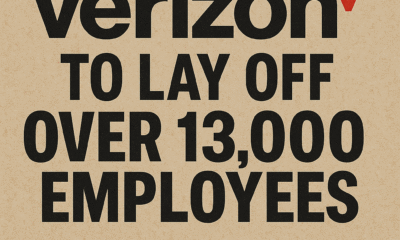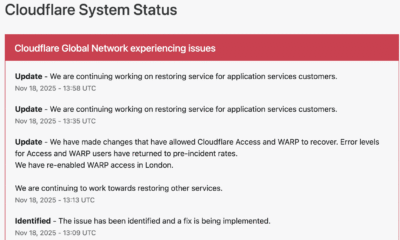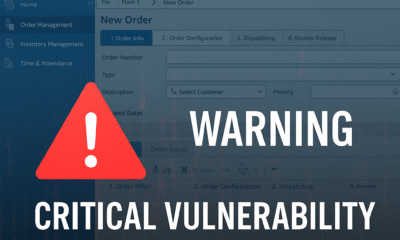ART & CULTURE
Smart Cities, Real Dangers: Why Morocco Must Secure Its Cyber-Physical Infrastructure Now
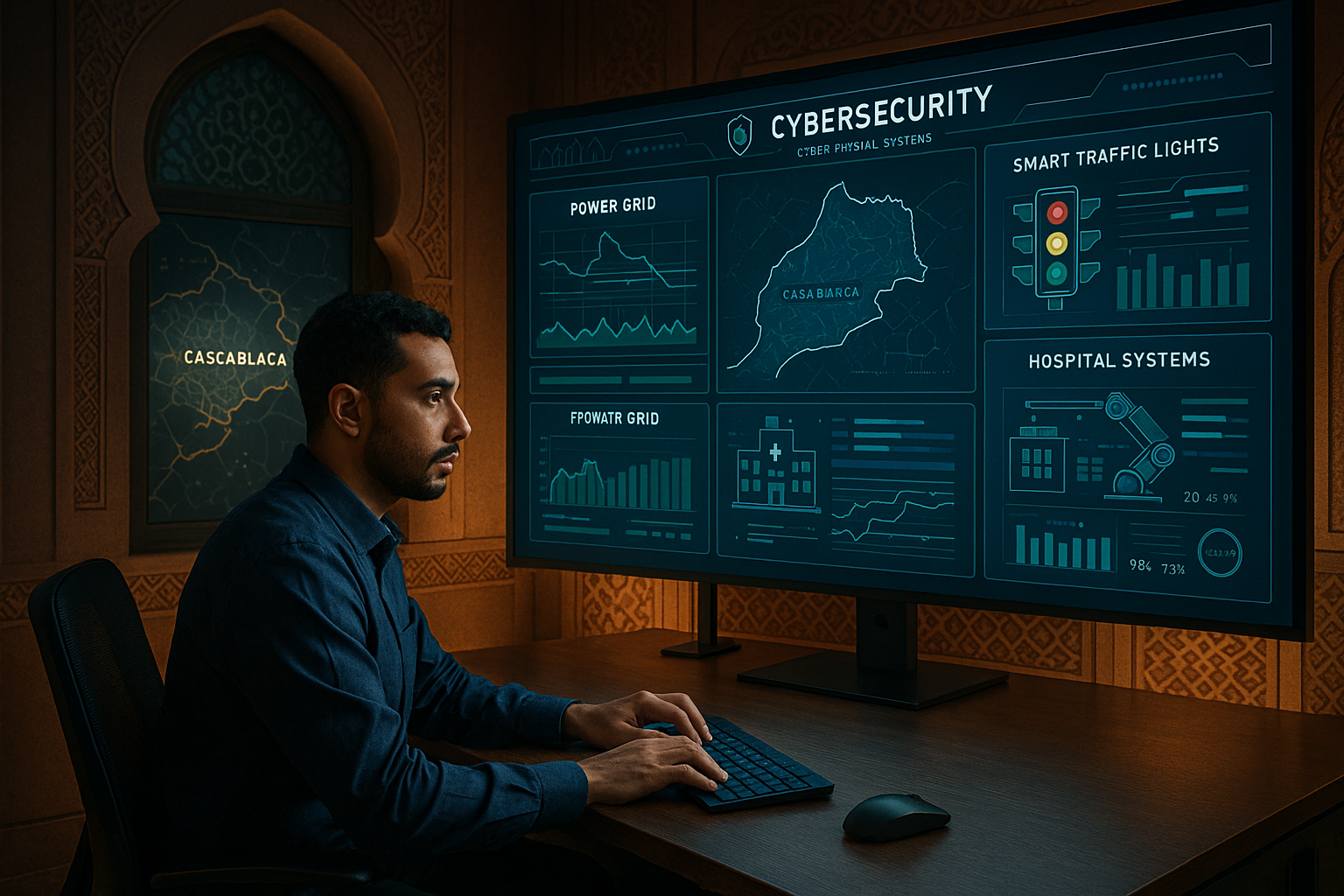
From smart cities to hospitals and energy grids, the integration of digital and physical systems brings efficiency—and unprecedented vulnerabilities. Experts warn Morocco and other nations must act urgently.
Cyber-Physical Systems Under Siege: The Hidden Digital Threat to Morocco’s Modernization
In a world rapidly merging the digital with the physical, cyber-physical systems (CPS) are becoming the backbone of modern society. These systems—which control everything from traffic lights and hospital ventilators to water treatment plants and power grids—are revolutionizing efficiency and public service. Yet as Morocco embraces smart cities, high-speed rail, and industrial automation, a silent threat is growing: these systems are increasingly vulnerable to cyberattacks that could have devastating real-world consequences.
“Cyber-physical systems are no longer theoretical targets—they’re under real attack,” said Dr. Andrea Little Limbago, a cybersecurity expert and former advisor at the U.S. Department of Defense. “This is not just about stolen data; it’s about physical harm, disrupted cities, and loss of life.”
How CPS Risks Impact Morocco
Morocco, hailed as a rising digital leader in Africa, is investing heavily in smart infrastructure—from Casablanca’s smart city initiative and Rabat’s tech hubs to the high-speed Al Boraq rail line and digitalized ports like Tanger Med. But with this progress comes new risks.
Cyberattacks on CPS can trigger blackouts, paralyze emergency services, or even sabotage medical equipment. For a country positioning itself as a gateway to African innovation, the cost of inaction could be catastrophic.
“Our energy grid, public hospitals, and urban traffic systems are increasingly automated and online,” says Younes Drais, a cybersecurity advisor based in Casablanca. “That’s progress—but without proper security, it’s also a ticking time bomb.”
A recent warning from Infosecurity Magazine noted that more than 60% of industrial CPS networks globally run outdated software and lack segmentation—making them prime targets for ransomware, sabotage, and state-sponsored attacks. These same vulnerabilities exist in many Moroccan systems as well.
Technical Defense Strategies: What Must Be Done
Cybersecurity professionals worldwide—and in Morocco—are urgently calling for a coordinated, strategic response. Here’s what organizations must do to secure CPS environments:
1. Segment Operational Technology (OT) from IT Networks
Critical CPS environments like energy stations or hospital controls must be separated from internet-facing IT systems. By implementing a “zones and conduits” model and industrial firewalls, Morocco’s power stations and industrial zones can prevent attackers from moving laterally into core systems.
Technical Note: OT-specific firewalls and intrusion prevention systems should inspect protocols like Modbus, DNP3, and OPC-UA to detect anomalous traffic.
2. Implement Zero-Trust Architecture
Zero Trust means nothing and no one—inside or outside the network—should be trusted by default. In Moroccan hospitals and municipal systems, each connected device (e.g., patient monitor, CCTV node, or smart water sensor) should be authenticated and monitored.
Technical Note: Use multi-factor authentication (MFA), SIEM tools, and micro-segmentation across systems like ONCF’s rail control networks or airport logistics systems.
3. Conduct Regular Security Audits and OT Penetration Testing
CPS environments in Morocco require tailored assessments. Unlike regular IT audits, OT systems—such as factory robotics or irrigation controls—must be tested using passive tools that don’t disrupt operations.
Technical Note: Tools like Nozomi Networks or Dragos enable passive threat detection and allow for red-team simulation without interrupting factory lines or public utility services.
4. Patch and Monitor Device Firmware
Outdated firmware remains one of the weakest links. Whether it’s an airport baggage system or a chemical sensor in a water treatment plant, every connected device must be patched or secured with virtual mitigation techniques.
Technical Note: Tools like Tenable.ot and asset management platforms should be used to map Morocco’s CPS landscape and prioritize patching based on criticality.
The Global Context—and Why Morocco Must Lead in Africa
International incidents—from the 2021 Oldsmar water hack in the U.S. to ransomware attacks on European hospitals—highlight the urgent need for action. For Morocco, the consequences of a cyber-physical attack would ripple far beyond its borders, disrupting trade with Europe, weakening investor confidence, and jeopardizing national stability.
As the first African country to host a Cyber Range and one of the few with a national cybersecurity strategy, Morocco is well-positioned to lead by example.
“Morocco has the talent, infrastructure, and vision to become a cybersecurity leader in Africa,” said Karim El Khyari, an information security policy advisor. “But the time to secure cyber-physical systems is now—before the damage is done.”
Conclusion: A Call to Secure the Future
As Morocco accelerates into a smart, connected future, it must also embrace smart, connected defense strategies. The very technologies improving our cities, health, and mobility also make them vulnerable. Cybersecurity can no longer be treated as optional infrastructure—it is core infrastructure.
The future of Morocco’s digital success hinges not just on innovation, but on protection. CPS threats are not distant possibilities—they are today’s reality.
ART & CULTURE
Morocco to Spotlight Global South’s Role in Turbulent Times at MEDays 2025
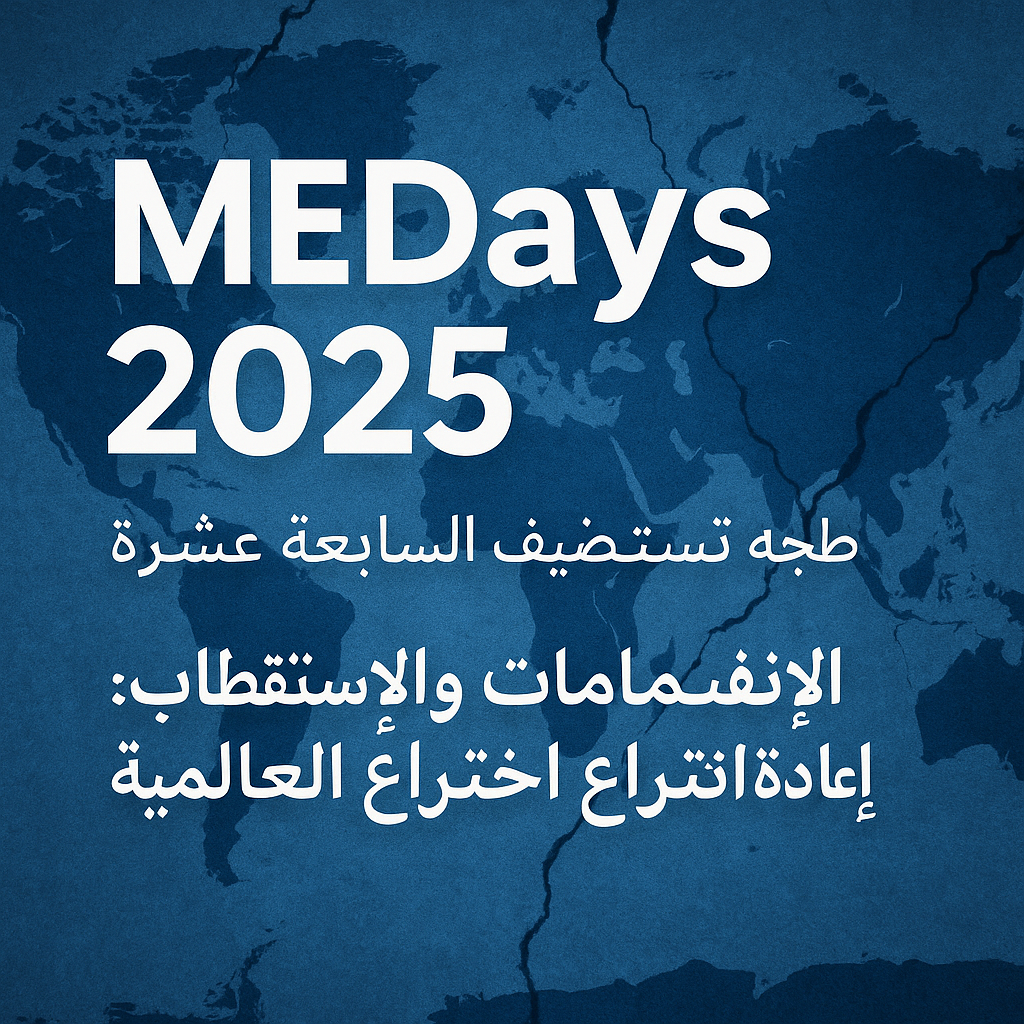
From conflict zones to climate diplomacy, the 2025 MEDays Forum will bring world leaders and experts to Morocco to rethink global stability and redefine the role of the Global South.
🌍 Tangier, Morocco — July 27, 2025
In a world increasingly fractured by geopolitical rivalries, wars, and economic uncertainty, Tangier is set to become the global stage for dialogue, diplomacy, and strategic vision. From November 26 to 29, 2025, the Moroccan port city will host the 17th edition of the MEDays Forum, under the evocative theme:
“Fractures and Polarization: Reinventing the Global Equation.”
Organized by the Amadeus Institute, this year’s forum arrives at a pivotal moment in world affairs. From the war in Ukraine to unrest in the Sahel, from the rise of populism to the weaponization of energy, the world faces a cascade of crises. The forum aims to confront these fractures head-on and propose actionable frameworks to address the new global disorder.
“This edition will serve as a critical platform to debate the future of international governance and the place of the Global South within it,” said Brahim Fassi Fihri, President of the Amadeus Institute.
🔹 A Platform for Multipolar Dialogue
With over 300 speakers, including heads of state, ministers, diplomats, academics, and CEOs, MEDays 2025 is expected to draw more than 7,000 participants from over 120 countries.
Key topics include:
- Geopolitical reordering and power vacuums
- Energy transition and climate instability
- Digital sovereignty and cyber conflicts
- Multilateralism vs. regionalism
- Africa’s voice in shaping global governance
As global institutions struggle to keep pace with shifting realities, MEDays offers what many consider a “Davos for the Global South”—a rare venue where perspectives from Africa, Asia, and Latin America drive the conversation.
🔹 Morocco’s Growing Strategic Role
Morocco’s choice as host is no coincidence. Over the past decade, the North African kingdom has positioned itself as a bridge between continents, a gateway to Africa, and a leader in renewable energy diplomacy.
“Hosting MEDays reaffirms Morocco’s commitment to multilateral dialogue and regional leadership in times of global polarization,” noted political analyst Dr. Nadia Lakhdar.
Tangier’s transformation into a high-tech and logistics hub further solidifies its role as a venue where ideas, influence, and innovation intersect.
🔹 Human Impact and Urgency
Beyond the headlines, the geopolitical fractures the forum will address are deeply human. Conflicts have displaced over 110 million people globally, while climate-related disasters have affected millions more. Youth unemployment, inflation, and debt crises burden entire regions—especially in Africa and the Middle East.
“We can’t talk about geopolitics in isolation. Every fractured policy or failed dialogue creates ripple effects felt by the most vulnerable,” said Fatima Al-Khatib, a youth activist from Jordan participating in the forum.
MEDays 2025 is expected to propose tangible policy frameworks, multi-stakeholder cooperation models, and public-private partnerships to address urgent global challenges.
ART & CULTURE
“We’ve Had Enough”: Moroccan Immigrants Protest With Their Absence
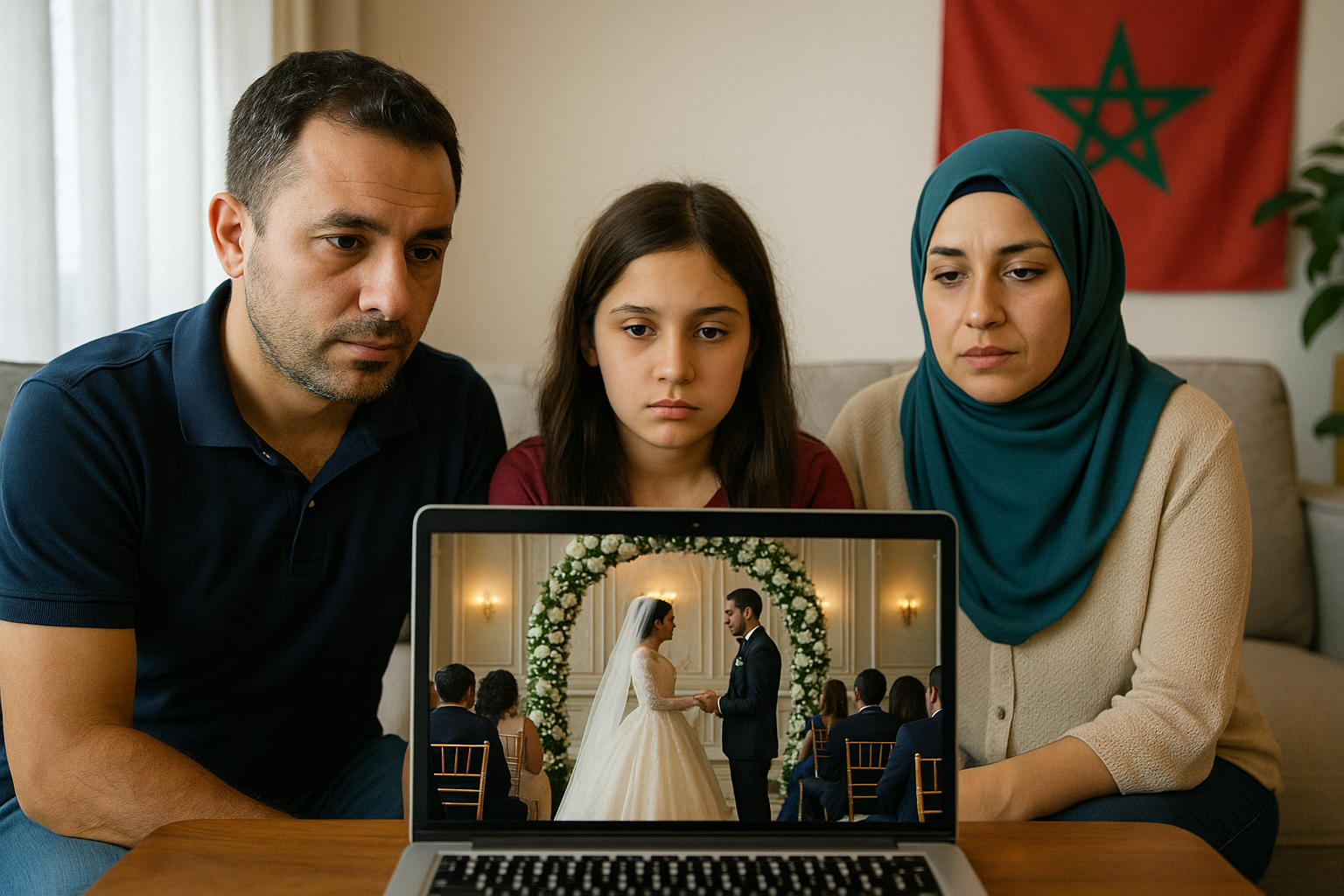
Rising airfare, political frustration, and lack of confidence in public services push thousands of Moroccan immigrants to skip summer visits home
By El Mostafa Ouchen | Rabat / Paris / Amsterdam / Montréal
RABAT – For decades, summer in Morocco has been defined by a vibrant homecoming ritual: airports buzzing with arrivals, highways jammed with rental cars, and families embracing across generations. But in 2025, that emotional annual migration is faltering. From Paris to Toronto, Brussels to Barcelona, Moroccan immigrants are increasingly choosing not to return home this summer.
“This is the first time in 18 years I won’t be going back,” said Amina M., a nurse living in Lille, France. “It’s not just the price — it’s the feeling that Morocco has turned its back on people like us.”
🚫 Soaring Costs and Systemic Barriers
At the heart of the no-return movement lies economic hardship. Roundtrip flights from Europe to Morocco have nearly doubled in price this year. In early July, economy tickets from Brussels to Casablanca were selling for €780 to €1,200, compared to €300–€400 last year.
Meanwhile, ferry operators from Spain to Tangier raised rates by over 45%, citing fuel costs and seasonal demand. For a family of five traveling by car, the total cost can now exceed €2,500, even before accommodations, gifts, or travel within Morocco.
“The bled has become luxury,” joked Karim Belkadi, a Moroccan living in Rotterdam. “We work all year, and we’re punished for wanting to visit our parents.”
🗺️ Deeper Discontent: Bureaucracy, Corruption, and Lack of Change
Beyond financial concerns, emotional and political fatigue is a powerful factor. Many Moroccan expatriates say they feel ignored, or even exploited, by a system that praises their remittances but disregards their concerns.
Issues cited include:
- Customs harassment at border points
- Corruption in port and airport inspections
- Poor infrastructure and medical access in rural hometowns
- Lack of legal recognition for diaspora contributions or dual nationality rights
“We send billions in remittances, but what do we get? Broken roads and disrespect at the border,” said Samira El-Haddadi, a Moroccan-Canadian based in Montreal.
According to Bank Al-Maghrib, Moroccans abroad sent MAD 100 billion ($10B USD) in remittances last year — a record sum — making them the country’s top source of foreign currency.
Yet many say their loyalty is wearing thin.
👥 The Silent Boycott — and Its Consequences
Online, the movement is growing under hashtags like #MREBoycott2025, #BladiBghatniFlouss, and #StayHomeThisSummer. Social media platforms like TikTok and Instagram are filled with Moroccan immigrants urging others to “make a statement” by not returning.
Economists warn the absence of diaspora spending will impact:
- Local tourism
- Rural economies
- Seasonal employment in service sectors
“The Moroccan diaspora are not just tourists. They are cultural and economic lifelines,” said Dr. Nour El Bakkali, a migration policy expert at Hassan II University. “Ignoring their grievances is a strategic error.”
⏳ Will Things Change?
So far, officials have responded with silence or defensiveness. An attempt by the Ministry of Moroccans Residing Abroad to address the concerns was met with mockery after it launched an “Appreciate Your Homeland” campaign on Instagram — with comments disabled.
Back in France, Amina M. summarized the sentiment best:
“We love Morocco. But this summer, love is not enough.”
ART & CULTURE
New Diplomatic Momentum: Portugal Supports Morocco’s Autonomy Framework for Sahara
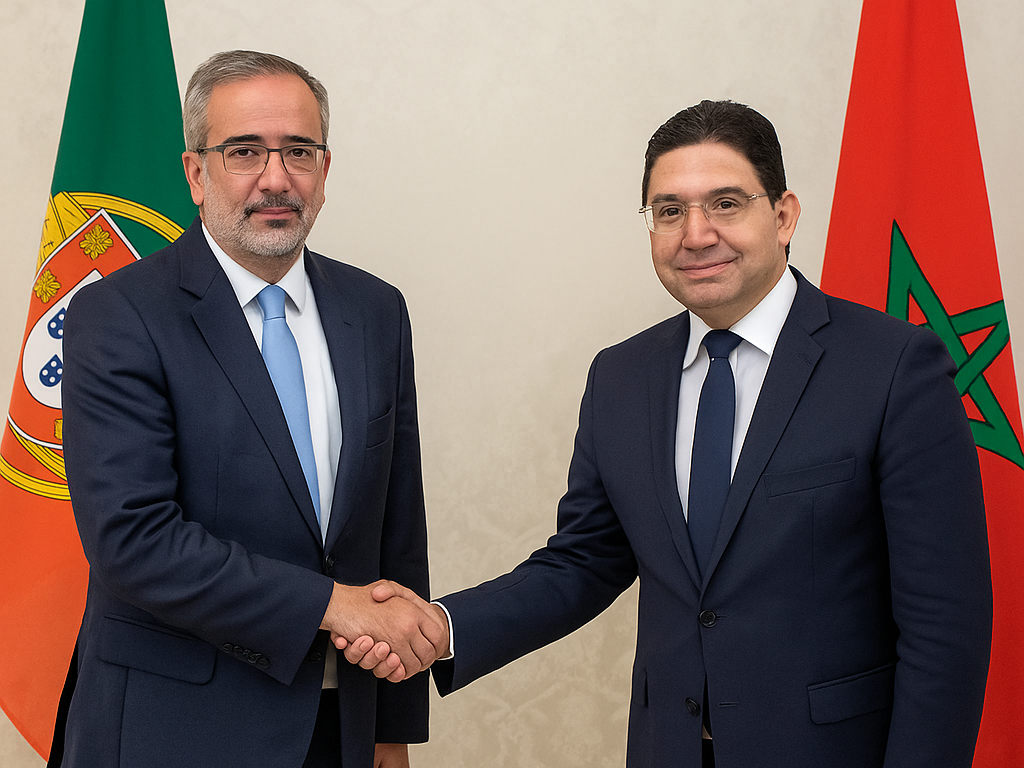
Lisbon bolsters regional diplomacy with full endorsement, while humanitarian stakes rise
📰 Lisbon Backs Rabat in Key Diplomatic Shift
A fresh wave of cautious optimism emerged across Western Sahara this week after Portugal reaffirmed its support for Morocco’s 2007 autonomy initiative. In an official visit to Lisbon on July 22, 2025, Moroccan Foreign Minister Nasser Bourita was welcomed by his Portuguese counterpart Paulo Rangel, with both sides issuing a joint declaration calling the autonomy proposal the “most serious, credible, and constructive” solution to the long-standing dispute.
This development places Portugal among a growing list of European nations—including France, Spain, and the United Kingdom—that have shifted toward supporting Morocco’s framework for peace under United Nations auspices.
📌 Key Facts & Diplomatic Milestones
- Date of meeting: July 22, 2025, Lisbon
- Officials present: Paulo Rangel (Portugal), Nasser Bourita (Morocco)
- Official statement: Portugal affirms Morocco’s autonomy initiative as a solid basis for resolving the Sahara conflict under the UN framework
- What the plan entails: Autonomy for Western Sahara under Moroccan sovereignty, with elected local governance over civil matters, while Morocco retains control of defense, diplomacy, and religion
- Portugal’s position: Stops short of full sovereignty recognition but aligns with other European partners
The endorsement signals a notable step in Portugal’s foreign policy approach and adds momentum to Morocco’s international diplomatic strategy.
🗣️ Voices and Perspectives
Speaking in Lisbon, Portuguese Foreign Minister Paulo Rangel said:
“Following moves by France, Spain, and the United Kingdom, Portugal affirms that Morocco’s autonomy plan is the most serious basis for a solution—within the framework of the United Nations.”
Political expert José Tomaz Castello Branco noted:
“This positions Portugal firmly among European allies favoring a political resolution. It also leaves room for Lisbon to adjust its position as the UN process unfolds.”
🧍♂️ Human Impact on the Ground
For residents of Western Sahara, especially those in refugee camps or under uncertain administrative conditions, this diplomatic recognition brings a renewed sense of hope. Humanitarian groups have welcomed the news, noting that political stabilization could finally unlock sustained access to healthcare, education, and infrastructure development—long impeded by regional instability.
However, the Polisario Front—a separatist group backed by Algeria—remains opposed to the plan, insisting on full independence for the Sahrawi people. Activists warn that any plan must be implemented with guarantees of rights, dignity, and local agency.
🌍 Background: A Conflict Spanning Decades
The Western Sahara conflict began in 1975 after Spain’s withdrawal. Morocco took administrative control of the territory, but the Polisario Front declared the Sahrawi Arab Democratic Republic (SADR) in 1976, leading to years of conflict and ongoing diplomatic gridlock.
Morocco’s autonomy plan—first submitted to the UN in 2007—has steadily gained support. With endorsements from the United States, France, Spain, and now Portugal, Rabat is strengthening its international posture.
🔎 Why This Matters Globally
- UN Process: Portugal’s statement supports a UN-based political resolution, increasing pressure on the Polisario Front and Algeria to return to the negotiation table.
- Regional Stability: The plan’s implementation could unlock broader cooperation in North Africa and reduce tensions in the Maghreb.
- Diplomatic Strategy: Morocco’s proactive diplomacy continues to shift global narratives in its favor.
⏭️ What Comes Next
UN-led discussions will likely intensify in the coming months, as Morocco leverages Portugal’s endorsement to push for more international backing. Whether this builds toward a lasting solution or faces renewed resistance remains to be seen. For now, the diplomatic tide appears to be turning in favor of autonomy with stability over prolonged conflict.



